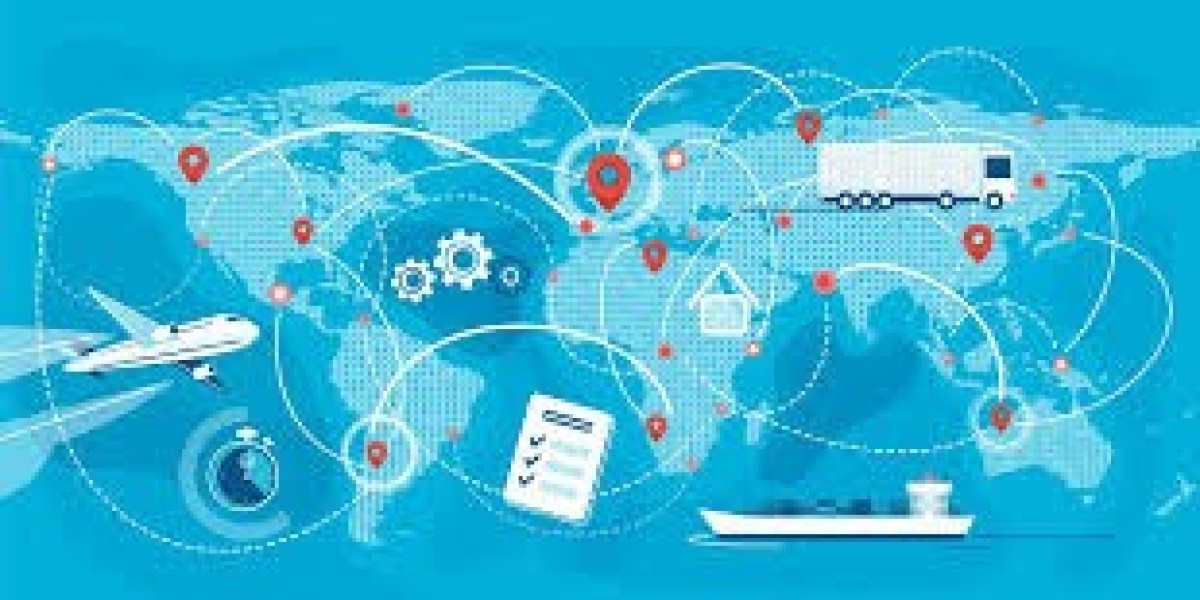In today’s globalized world, managing complex supply chains has become more challenging than ever. As businesses expand their reach across borders, they must contend with the intricacies of transportation, inventory management, and meeting customer demands in real-time. In this environment, intelligent supply chains, powered by artificial intelligence (AI), are becoming critical to ensure efficiency and reliability. Through technologies like predictive supply chain AI, adaptive logistics platforms, and smart inventory management, AI is revolutionizing the way global trade operates. Let’s explore how these AI-driven tools are reshaping global trade dynamics and improving supply chain efficiency.
Predictive Supply Chain AI: Forecasting and Mitigating Disruptions
Predictive supply chain AI uses machine learning algorithms to analyze vast amounts of historical data and forecast future events. This enables businesses to anticipate demand fluctuations, optimize inventory, and identify potential disruptions before they impact the supply chain. AI for demand forecasting helps companies predict market shifts, consumer behavior, and supplier reliability, thus enhancing their ability to manage stock levels more effectively.
A key advantage of predictive AI tools is their ability to prevent disruptions. By identifying vulnerabilities in the supply chain and providing early warnings, businesses can take proactive steps to mitigate risks. For example, AI-powered freight optimization can analyze trends and predict when a shipping route may experience delays due to factors like weather or geopolitical events, allowing businesses to adjust their plans accordingly.
One key aspect of predictive supply chain AI is its integration with real-time shipment tracking systems. This allows companies to have constant visibility over their shipments and make immediate adjustments when delays or disruptions occur. A study by McKinsey revealed that predictive analytics can improve supply chain forecasting accuracy by 15–20%, resulting in significant cost savings and better customer satisfaction.
Adaptive Logistics Platforms: The Future of Supply Chain Management
As the demand for faster, more efficient deliveries continues to rise, traditional logistics systems are no longer enough. Adaptive logistics platforms, driven by AI, allow businesses to react quickly to changing conditions in the supply chain, such as unexpected spikes in demand or transportation bottlenecks. These platforms use AI for demand forecasting and real-time data analytics to dynamically adjust logistics strategies, ensuring goods are delivered on time and in the most cost-effective manner.
An important feature of adaptive logistics platforms is their ability to integrate with other technologies. For instance, generative AI development has enabled the creation of systems that can simulate various supply chain scenarios and generate optimized solutions. This kind of generative AI integration helps businesses decide the best routes, inventory distribution, and even the optimal packaging solutions for shipping.
For example, if a logistics platform detects a potential disruption in the supply chain—such as a port strike—AI can automatically reroute shipments through alternative paths. This kind of automation reduces the need for manual intervention and ensures that businesses can continue to deliver products without major delays.
Smart Inventory Management: Automation and Optimization
Efficient inventory management is at the heart of a successful supply chain. With traditional methods, inventory control is often reactive rather than proactive. However, smart inventory management systems, powered by AI, allow companies to track their stock in real time and predict future inventory needs based on trends and demand. These AI systems can automatically reorder supplies, adjust stock levels, and optimize storage to ensure minimal waste and maximum efficiency.
The role of AI in demand forecasting cannot be overstated in this context. By predicting future product demand, AI helps businesses maintain the right inventory levels, reducing both excess stock and stockouts. This reduces operating costs while ensuring that products are always available when customers need them.
AI also enhances adaptive stock management tools that help businesses adjust their inventory levels dynamically. These tools analyze sales data, market trends, and seasonality, enabling businesses to adjust their stock strategies accordingly. As a result, businesses can avoid overstocking or running out of key products, maintaining customer satisfaction and improving overall supply chain efficiency.
The Role of Generative AI Development in Supply Chain Innovation
Generative AI development plays a significant role in advancing supply chain technologies. By leveraging AI models that can generate optimized solutions based on a given set of parameters, businesses can explore various strategies and determine the most effective course of action. Generative AI integration allows for the creation of supply chain solutions that are tailored to specific needs, whether it’s for improving shipping routes, reducing delivery times, or optimizing stock levels.
Moreover, generative AI integration is particularly useful in identifying inefficiencies within the supply chain. By using historical data, AI can simulate different strategies and predict outcomes, helping businesses avoid costly mistakes. ChatGPT integration, for instance, could provide a more personalized approach to managing supply chain challenges, offering real-time support and generating automated responses to common queries, thus saving time for supply chain managers.
AI and ChatGPT Integration: Bridging the Gap Between Data and Decision-Making
As AI continues to evolve, ChatGPT integration is becoming an essential tool for supply chain management. ChatGPT integration can be used to automate communication and assist in decision-making, providing businesses with actionable insights in real time. Through conversational AI, supply chain managers can interact with the system, receive recommendations, and make data-driven decisions faster.
For instance, in the context of predictive supply chain AI, ChatGPT integration could assist by offering suggestions based on the data processed by AI models. This allows decision-makers to access critical information without having to sift through massive datasets, reducing decision-making time and improving efficiency.
How Does AI Support Just-in-Time Inventory Systems?
AI supports just-in-time (JIT) inventory systems by helping businesses predict demand with greater accuracy. Through predictive supply chain AI and smart inventory management systems, companies can avoid excess inventory and ensure that they have just enough stock to meet customer demands. JIT systems benefit from AI’s ability to forecast demand in real-time, ensuring that goods arrive precisely when needed, thus minimizing storage costs and reducing waste.
In addition, AI-powered freight optimization tools help ensure timely delivery by predicting potential delays and providing alternative routes. This ensures that JIT systems can operate smoothly, even in the face of unexpected disruptions.
Can Predictive AI Tools Prevent Supply Chain Disruptions?
Yes, predictive AI tools can significantly reduce the impact of supply chain disruptions. By using machine learning and real-time data, these tools can identify potential risks such as transportation bottlenecks, material shortages, and geopolitical events. Early detection allows businesses to take preventative action, whether by rerouting shipments, securing alternative suppliers, or adjusting inventory levels.
For example, AI for demand forecasting can help businesses anticipate changes in consumer behavior, giving them enough lead time to adapt to new trends and avoid supply shortages. In this way, predictive AI tools act as an early warning system, helping companies stay ahead of potential disruptions and maintain continuous operations.
What Role Does AI Play in Global Trade Optimization?
AI is integral to global trade optimization as it enhances decision-making, streamlines logistics, and improves efficiency across the supply chain. By leveraging tools like predictive supply chain AI, adaptive logistics platforms, and smart inventory management, businesses can optimize their global trade strategies.
AI helps businesses identify the most cost-effective shipping routes, predict demand in international markets, and manage cross-border inventory more efficiently. Moreover, AI technologies like generative AI development and generative AI integration allow for the creation of customized solutions that cater to the unique challenges of global trade, ensuring that goods are delivered on time and at the lowest cost possible.
User Experience: How AI is Changing the Way We Manage Supply Chains
AI’s impact on supply chain management is profound. As businesses continue to face challenges such as fluctuating demand, supply disruptions, and transportation delays, AI-powered systems have become indispensable. Companies that have implemented predictive supply chain AI and adaptive logistics platforms have reported significant improvements in operational efficiency and cost savings.
For example, one logistics company utilized AI-powered freight optimization tools to reduce fuel costs and improve delivery times. By incorporating generative AI development into their strategy, they were able to create optimized routes and reroute shipments in real time, resulting in a 20% reduction in shipping delays.
In conclusion, AI is not just a trend; it’s the future of global trade. From predictive tools that forecast demand to smart inventory management systems that optimize stock levels, AI is driving the next generation of intelligent supply chains. By leveraging technologies like generative AI integration, ChatGPT integration, and adaptive logistics platforms, businesses can stay ahead of the curve and navigate the complexities of modern supply chains with greater ease and efficiency.
FAQs Related to Intelligent Supply Chains and AI
How can AI optimize logistics for global trade?
AI can optimize logistics for global trade by predicting demand fluctuations, identifying optimal shipping routes, and automating inventory management. Predictive analytics and real-time tracking improve decision-making and reduce inefficiencies.
What are the benefits of AI for inventory management?
AI-driven inventory management systems help businesses maintain the right stock levels by forecasting demand and automating reordering processes. This reduces overstocking, minimizes stockouts, and ensures a smoother supply chain.
How does ChatGPT integration improve supply chain management?
ChatGPT integration improves supply chain management by providing real-time support for decision-making, automating responses to queries, and offering actionable insights from data analysis.
Naijamatta is a social networking site,
download Naijamatta from Google play store or visit www.naijamatta.com to register. You can post, comment, do voice and video call, join and open group, go live etc. Join Naijamatta family, the Green app.
Click To Download


